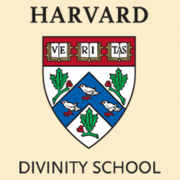
David Little, T.J. Dermot Dunphy Professor of the Practice in Religion, Ethnicity, and International Conflict at Harvard Divinity School, has been named director of the School's Center for the Study of Values in Public Life.
"Professor Little brings to the directorship a distinguished academic background in religious ethics and the relationship of ethics and social science, as well as broad experience in the world of public policy," said J. Bryan Hehir, Chair of the School's Executive Committee, who made the appointment in January for a three-year, renewable term. "He is uniquely suited to help the center address both theoretical issues of religion, ethics, and public life as well as continuing the center's work on the normative dimensions of public policy, a dimension often underemphasized in policy discourse and decision-making."
Little came to the Divinity School last July, as the first Dunphy Professor. Before that, he had been senior scholar in religion, ethics, and human rights at the United States Institute of Peace in Washington, D.C., since 1989. He was professor of religious studies at the University of Virginia for 15 years, and also taught at Yale Divinity School, Amherst College, Haverford College, Brown University, and the University of Colorado.
His work in recent years has taken him, as adviser and researcher, to areas of the world such as Sudan, Sri Lanka, Bosnia, Northern Ireland, and Israel in which religion and ethnicity play a central role in social conflict. He has written about nationalism, ethnicity, human rights, religious liberty, and religion and American foreign policy. His recent books include Ukraine: The Legacy of Intolerance, Sri Lanka: The Invention of Enmity, and Islamic Activism and U.S. Foreign Policy (coauthored). Little served on the U.S. State Department Advisory Committee on Religious Freedom Abroad from 1996 until 1998.
The Center for the Study of Values in Public Life was first proposed in 1984 by Dean George Rupp, and its development over the next decade was guided by Rupp's successor, Dean Ronald Thiemann. It was fully established in 1995, with special financial help from the Lilly Endowment, as a teaching and research center for the examination of the place of values in public debates, policies, and institutions. From the beginning, the Center has considered the subjects of civil society and the renewal of public life, the environment; business and the economy, and international relations.
Responding to his appointment, Little alluded to the growing public importance of religious and cultural conflicts of value domestically and internationally as a strong reason for intensifying the mission of the Center at this time.
"Whether it is a question of how faith-based communities in this country should respond to welfare policies, or what ought to be done about societies around the world that are lethally divided by religious and cultural differences, the subject of religion and public values is unavoidable. We need some "new thinking" on these questions, thinking that combines the wisdom and insights of religiously trained and sensitive people with the experience and outlooks of decision- and policy-makers engaged in public life. We hope that the center can provide a location where such thinking can take place."
He emphasized that he did not expect his own professional grounding in international affairs to eclipse the center's established concern with American issues. On the contrary, he said, he hopes to see connections drawn out between domestic and foreign policy issues, as, for example, in regard to the role of nongovernmental organizations, including religious communities, in advancing the cause of peace, justice, and human rights, both in the United States and abroad. "Globalization reduces the significance of borders in regard to the problems humanity faces, just as it challenges the standard compartments of thought and action according to which those problems are conventionally addressed," said Little.
The center, which was directed by Ronald Thiemann through 1998, currently sponsors on-going interdisciplinary seminars, a fellows program, and a summer leadership institute for black churches involved in community economic development. While stressing that it is too early to describe his plans in any detail, Little did mention the possibility of holding a series of seminars on religion and peace that would examine particular countries, like Northern Ireland, by bringing together diplomats, scholars, religious experts and leaders, and peace practitioners and activists.
Little, who received a BA from the College of Wooster, a BD from Union Seminary in New York, and a ThD from Harvard ('63), will continue to teach courses as the Dunphy Professor. He is also a faculty associate at Harvard's Weatherhead Center for International Affairs, and he expressed his desire to expand relations not only between the Center for the Study of Values in Public Life and the Divinity School, together with the Center for the Study of World Relations, but also between the center and some of Harvard's other centers and graduate and professional schools.
Little and his wife, Priscilla, live in Cambridge. They have three children and five grandchildren.
—by Wendy McDowell
